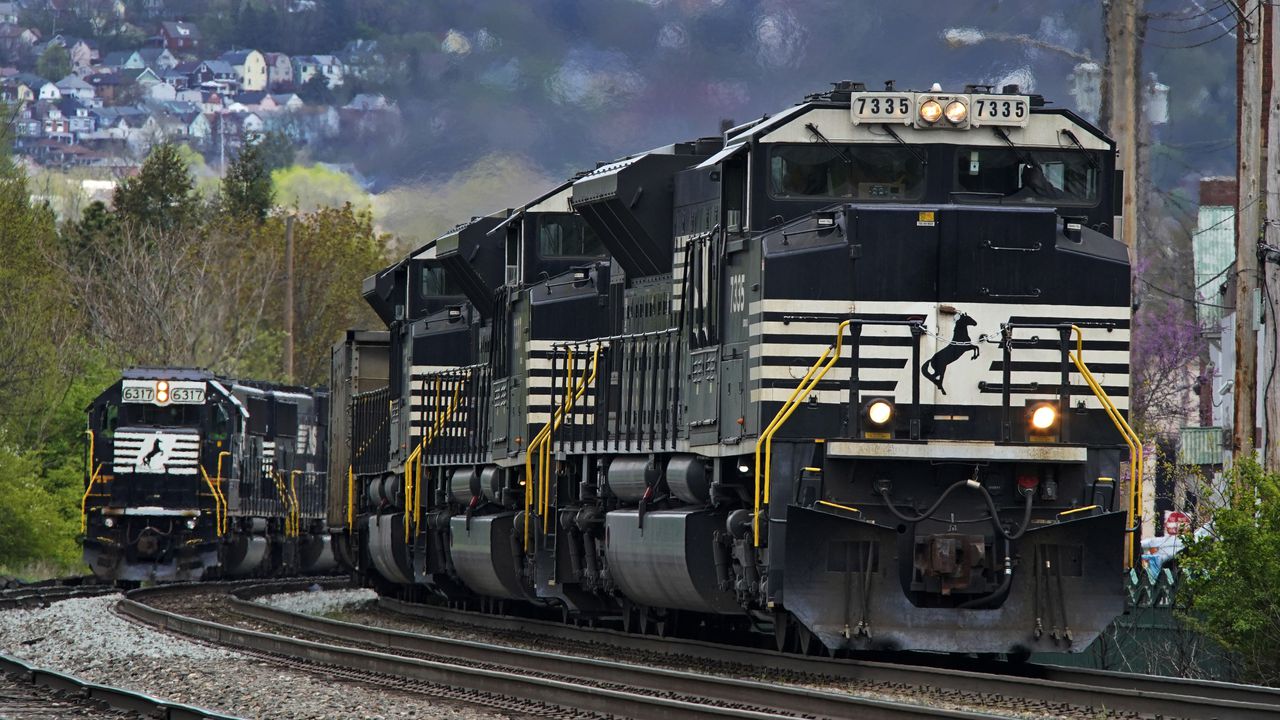Birmingham area gets $8 million to help with blocked railroad crossings
An $8 million federal grant will help officials tackle a longtime problem of blocked railroad crossings hindering access to several Birmingham area neighborhoods.
The grant will improve Norfolk Southern’s railway line by funding plans to redesign tracks, bridges, signals and roads to reduce blocked crossings. The move is expected to improve community safety and access to roads leading in and out of communities including Harris Homes, a public housing community in east Birmingham, along with and nearby communities in Trussville.
U.S. Rep. Terri Sewell, D-Birmingham, today announced the funding assistance from the Consolidated Rail and Infrastructure Safety and Improvements grant program, which is from the U.S Department of Transportation’s Federal Railroad Administration.
“Today marks a major step forward in our fight against blocked railroad crossings in Alabama’s 7th Congressional District,” Sewell said in a press release this morning. “This funding from President Biden’s Bipartisan Infrastructure Law represents a critical part of our long-term strategy to alleviate blocked railroad crossings and will go a long way in improving the quality of life for those living in and around Birmingham.”
Birmingham, Trussville and Norfolk Southern will contribute to match 20 percent of the funding, as required by the federal grant program.
“Securing this funding was truly a team effort, and I want to thank the city of Birmingham and our local leaders for their hard work in developing such a strong proposal and Norfolk Southern for their significant financial commitment to this project,” Sewell said.
Birmingham City Councilman Darrell O’Quinn said the grant addresses yearslong requests from residents who have sought improved safety measures and ways to enter and exit their communities.
“It’s hard not to get a little emotional thinking about what this will mean for the residents of this area. This is an opportunity to drastically improve the quality of life for so many of my neighbors,” O’Quinn said in a press release. “I’d like to take a moment and thank our partners at Norfolk Southern, who own the rail corridor in question. They have been a tremendous partner in moving this initiative forward and will be committing $1.5 million in funding to this initial planning and engineering grant. It’s the largest financial commitment they’ve made to a project of this type, ever.”
Train crossings as old as the city itself have presented safety concerns. Residents around Birmingham have long complained that the trains cut them off from the rest of the city, causing slowed fire and ambulance service. The problem was particularly problematic in the Collegeville Neighborhood of north Birmingham before state and federal assistance finally arrived to build a vehicle and pedestrian overpass in the area. The bride opened in 2017.
A 2007 documentary film, ‘’Trained In,’’ illustrated a safety crisis created by stalled trains in Collegeville. The film was produced by Kevin Garrison and Allison Stagg when they were students at the University of Alabama.
When Gov. Bob Riley visited Birmingham in 2009, then Councilwoman Maxine Parker spoke to him about the trains and how they affected the students attending the nearby Hudson School. Riley saw the problem first-hand and eventually pledged support for an overpass.
Like other communities around town, the North Birmingham Community for decades made up a major industrial center where homes were built just blocks from the plants where many residents worked.
